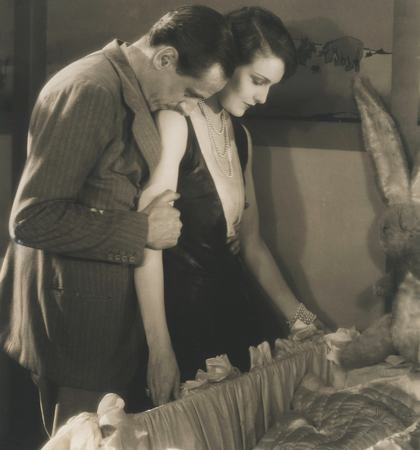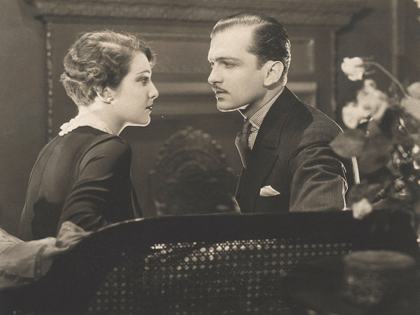Festivals
London Film Festival 2011: The S&S blog
Rich and strange: The First Born

Thirza Wakefield, 22 October
Miles Mander’s 1928 silent film The First Born screened to a full house at the Queen Elizabeth Hall last Thursday night. BFI Head Curator Robin Baker opened with a fascinating and neophyte-friendly presentation of the film’s history and its painstaking repair by the archive team. Before-and-after footage described the tasks and techniques typical of the restoration process and peculiar to this project – memorably, the mid-scene disappearance of a housemaid in the BFI’s only owned copy of the film.
The presence of a live band (Janey Miller on oboe, Martin Pyne on percussion and Stephen Horne on piano, flute and accordion), installed far left of the screen, was almost as uncanny as the vaporising maid. But this anomaly takes no getting used to: it’s extraordinary how you forget that the music isn’t issuing from the picture and hasn’t always belonged to the film – a testament to the exceptional sensitivity and invention of Horne’s original score. The addition of a sleazy Gallic accordion to announce the libertine Nina de Landé was particularly amusing and, I wonder, a reference to Bioscope’s contemporary appraisal of the film as suited for “continental trade”.
The First Born, starring Mander himself and an ingénue Madeleine Carroll, is a violent and libidinous affair. The film begins with the separation of Sir Hugo Boycott and his wife on account of her failure to bear him a son, and what follows can only be described as an emotional disaster movie for the long-suffering Lady Madeleine. Mander’s paroxysmal physicality as the volatile philanderer is genuinely frightening and Carroll’s Madeleine is lovely, never sugary nor pious, having a brightness even as blow follows blow. There are moments in the film of such sensual provocation that they surprised (and embarrassed) the audience, and its indictment of Hugo’s deep-rooted misogyny is the more effective because directly and impartially represented.

The First Born was co-written by Alfred Hitchcock’s wife and long-term collaborator Alma Reville, and it’s clear the pair shared a gift for visual devices and, yes, suspense. The film’s playful imagery is reminiscent of Hitchcock’s own silent works and his later talkies – the dramatic use of a switchboard operator in Mander’s film is also to be seen in Hitchcock’s silent Easy Virtue, released the same year, and when the bird’s-eye circle of a dining table fades to a spinning record, Psycho comes to mind. And the film has all the timing and tension of a late Hitchcock picture.
Indeed, The First Born impresses not only within the silent tradition but out of its time. The restoration of the film’s original tinting – in amber, straw, lavender and pink – enhances its natural atmosphere, and the narrative titles are so distinctly voiced as to make you forget, once again, that this is a silent film. Intelligent and gripping, intimate and disturbing, The First Born is an accomplished, deserving example of early cinema.
« Correspondences: Jonas Mekas, José Luis Guerín, Jafar Panahi
See also
No moss gathered: Nicholas Ray’s widow Susan talks to Demetrios Matheou about completing and restoring his 1973 swansong We Can’t Go Home Again (October 2011)
Margaret Sullavan: Thirza Wakefield’s inspiration for our Women on Film competition (June 2011)
Pandora’s Box, restored: James Bell blogs from the 2010 London Film Festival (October 2010)
Electric ‘Underground’: Jay Weissberg on Anthony Asquith’s 1928 silent, the BFI’s 2009 Archive Gala restoration (November 2009)
The man who wasn’t there: Michael Eaton on Eliot Stannard, writer of eight Hitchcock silents and the manual on screenwriting (December 2005)
